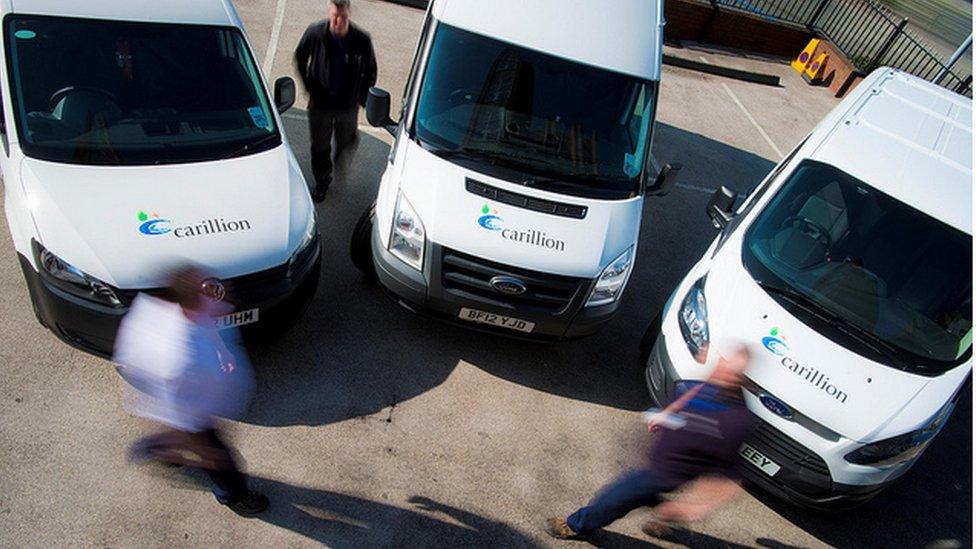Carillion shares hit as it cuts revenue forecast
- Published

Troubled UK building and services firm Carillion saw shares close down 20% after it said full-year results would be below current expectations.
The firm reported a first-half loss of ТЃ1.15bn and said it had taken an impairment charge of ТЃ134m on its UK and Canadian construction businesses.
It had also made provision of ТЃ200m for losses on its support services contracts.
This is on top of an ТЃ845m write-off announced in July.
Carillion's full-year revenues are now forecast to be between ТЃ4.6bn-ТЃ4.8bn, down from a previous expectation of ТЃ4.8bn-ТЃ5bn.
"This is a disappointing set of results," said interim chief executive Keith Cochrane, who took over following the resignation of Richard Howson in July.
The company's shares have lost two-thirds of their value since its problems came to light in the summer.
It is one of the firms involved in building the forthcoming HS2 high-speed railway line.
A government spokesperson said: "Carillion is a major supplier to the government with a number of long-term contracts. The company has kept us informed of the steps it is taking to restructure the business.
"We remain supportive of their ongoing discussions with their stakeholders and await future updates on their progress."
'Challenge' ahead
The firm said it was still in talks to sell its UK healthcare arm and its Canadian business. It said it now expected sell-offs to raise ТЃ300m, up from an earlier target of ТЃ125m.
Other options were also under consideration, "including raising equity to repair and strengthen the balance sheet in due course," it added.
"No-one is in any doubt of the challenge that lies ahead," said Mr Cochrane. "We have made an encouraging start and the ambition is there to build on that progress."
Carillion said it had reduced its pension fund deficit by ТЃ80m and had the potential to cut it by another ТЃ120m.
It had also agreed a credit facility of ТЃ140m with a number of banks.
Michael Hewson of CMC Markets told the ДѓЯѓДЋУН that Carillion's problems stemmed largely from its construction business, because it had won major contracts on the basis of bids that were too low.
"They low-balled an awful lot of bid work and they're finding they can't make any money out of it and it's caught up with them," he said.
According to other analysts, those contracts include a hospital in Liverpool, a road in Aberdeen and a tramway in Sheffield.
Inflexible contracts have meant that extra costs could not be passed on to customers, leading to a big dent in the firm's expected income.
- Published17 July 2017